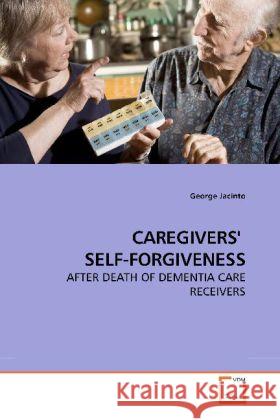Caregivers' Self-Forgiveness » książka
Caregivers' Self-Forgiveness
ISBN-13: 9783639241549 / Angielski / Miękka / 2010 / 144 str.
Caregivers of chronic illness, such as Alzheimer's disease, are faced with many challenges that result from their multiple roles and responsibilities. The increased caregiving responsibility as it relates to the dual roles of family member and caregiver is heighted as the disease progresses. This study examined the relationship of self-forgiveness and adaptive coping, religious/spiritual practices, social support, decreased grief, and mental well-being for long-term caregivers most of whom cared for a person diagnosed with Alzheimer's disease. Self-forgiveness was significantly related to each of the variables. Results of the stepwise regression analysis revealed statistically significant relationships between self-forgiveness and adaptive coping, social support and decreased grief. A discussion of the implications of this research for social work education, policy, practice and research is highlighted.Target Groups: Caregivers, social workers, nurses, physicians, mental health counselors, ministers, program planners for long-term caregivers, hospice workers, gerontologists, and bereavement counselors
Caregivers of chronic illness, such as Alzheimers disease, are faced with many challenges that result from their multiple roles and responsibilities. The increased caregiving responsibility as it relates to the dual roles of family member and caregiver is heighted as the disease progresses. This study examined the relationship of self-forgiveness and adaptive coping, religious/spiritual practices, social support, decreased grief, and mental well-being for long-term caregivers most of whom cared for a person diagnosed with Alzheimers disease. Self-forgiveness was significantly related to each of the variables. Results of the stepwise regression analysis revealed statistically significant relationships between self-forgiveness and adaptive coping, social support and decreased grief. A discussion of the implications of this research for social work education, policy, practice and research is highlighted.Target Groups:Caregivers, social workers, nurses,physicians, mental health counselors, ministers, program planners for long-term caregivers, hospice workers, gerontologists, and bereavement counselors.











